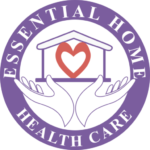A patient’s options for receiving home health care services are virtually endless. Care can range from nursing to specialized medical treatments, such as laboratory workups, depending on the individual patient’s situation. Your treatment plan and any services you may require at home will be determined by you and your doctor. Check out more on Home health Chicago here.
The following are examples of at-home care services:
Doctor’s attention
A physician may come to a patient’s house to diagnose and treat a disease(es). He or she may also examine the needs for home health care on a regular basis.
Nursing assistance
The most prevalent sort of home health care is nursing care, which varies depending on the individual’s needs. A registered nurse will create a care plan in cooperation with the doctor. Wound dressing, colostomy care, intravenous therapy, drug administration, patient monitoring, pain control, and other health assistance are all examples of nursing care.
Occupational, physical, and/or speech therapy
Following an illness or accident, some people may require assistance. A physical therapist can devise a treatment plan to assist a patient regain or strengthen muscle and joint function. A speech therapist can help a patient who has lost their capacity to communicate clearly regain it.
Social and medical services
Medical social workers assist patients with a variety of services, including counseling and locating community resources to aid in their recovery. If the patient’s medical condition is complex and requires coordination of multiple services, some social workers also serve as the patient’s case manager.
Home health aides provide assistance.
The patient’s fundamental personal needs, such as getting out of bed, walking, showering, and dressing, can be assisted by home health aides. Under the direction of a nurse, some aides have obtained additional training to assist with more specialized care.
Care for a housewife or a person in need of basic assistance
While a patient is receiving medical treatment at home, a homemaker or someone who assists with duties or responsibilities can keep the house in order by preparing meals, doing laundry, grocery shopping, and other housekeeping tasks.
Companionship
Some patients who are alone at home may require the company and supervision of a companion. Some companions may also help out around the house.
Care is provided by volunteers.
Companionship, personal care, transportation, emotional support, and/or administrative assistance are all examples of how volunteers from community organizations can provide basic comfort to the patient.
Nutritional assistance
Dietitians might visit a patient at home to conduct dietary assessments and provide advice to help them stick to their treatment plan.
X-ray imaging and laboratory imaging
Certain laboratory procedures, such as blood and urine tests, can be completed at the patient’s own home. Furthermore, lab technicians can conduct this service at home using portable X-ray devices.
Services in the pharmaceutical industry
Medical supplies and equipment might be delivered to your home. If the patient need it, training on how to take medications and use equipment, including intravenous therapy, can be provided.
There are companies that provide transportation for patients who need to get to and from a medical facility for treatment or physical examinations.
Meals delivered to your home
Many towns provide this service, known as Meals-on-Wheels, to patients at home who are unable to cook for themselves. Hot meals can be provided several times a week, depending on the individual’s needs.
What does a home health care person do?
Home health care agencies have traditionally provided both skilled and non-medical home care services so Skilled nursing care, occupational therapy, physical therapy, durable medical equipment, and other personal healthcare-related services were all available through home health services. Non-medical home care is also provided by some agencies. There are now agencies that specialize in non-medical home care.
ADLs and IADLs are two types of ADLs.
Activities of daily living (ADLs), independent activities of daily living (IADLs), and companionship are typically provided by non-medical home care services.
Ambulating (walking), transferring (getting up from a chair), dressing, eating, drinking, personal hygiene, and taking medication are examples of ADLs. Driving, making meals, performing housework, shopping, managing finances, managing medication, and using the telephone are examples of IADLs (Instrumental Activities of Daily Living).
Home care seeks to allow patients to stay at home instead of requiring residential, long-term, or institutional nursing care. Home care services are typically provided in the client’s own home. Professional health care, life aid, homemaking, and companionship are some of the services that may be provided.
Medical or psychological evaluation, wound care, medication instruction, pain management, illness education and management, physical therapy, speech therapy, and occupational therapy are examples of professional Home Health services. Refer Home health care near me for more information.
While there are some variances in terminology used to describe features of Home Care or Home Health Care in the United States and other parts of the world. The descriptions are mostly the same. Respiratory and occupational therapists, medical social workers, and mental health workers are among the other health-care professionals.
